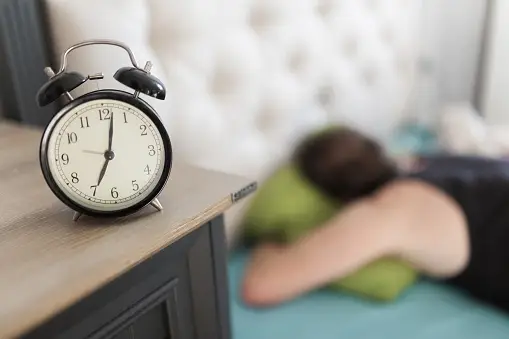Struggling with sleep? You’re not alone. According to the research, about 30% of all people face regular sleep issues, with 10% having severe insomnia symptoms that affect their daily routine. But the good news is that most issues can be cured by twinkling some routine activities.
7 Ways to Normalize Your Sleep
1. Set a Consistent Bedtime
Go to bed at the same time every night. It helps your body get into a rhythm and form a routine. You should stick to your plan even on weekends. If this sounds too complex, try setting up reminders or alarm clocks, showing that it’s time to go to bed or wake up.
2. Watch Your Diet
Did you know that some foods can disturb your night’s rest? Yes, indeed, and heavy meals and alcohol are at the top of that black list. Eat light in the evening and avoid late-night snacking.
You can also try natural aids that work specifically to help you fall asleep faster and relax better. For example, some products that contain delta-9 thc (e.g., live rosin edibles) help to promote relaxation. You can take those in small doses, just ask your healthcare provider about how to do it right.
3. Limit Screen Time Before Bed
Screens keep your brain active. So, give it some time and space to calm down. Turn off your devices at least an hour before bed, and try reading a book instead. This way, you signal about your intention to sleep soon. But if you push the terms to about two hours, you can get even greater health benefits.
4. Create a Bedtime Routine
Actually, it’s cap advice that covers all the other aspects. Take a warm bath, conduct a beauty routine, or listen to calming music. You can also try yoga or meditation — with them, you target the causes of sleep disruption and get faster overall results.
5. Avoid Caffeine Late in the Day
This one is a no-brainer because caffeine stays in your system for hours. Avoid coffee, tea, and energy drinks no less than 8 hours before bed. It may not be the easiest thing to do, but you will soon spot the positives.
6. Get Some Sunlight
Have you heard about the sunlight energy? It does exist! Exposure to natural light during the day helps regulate your sleep-wake cycle. Spend time outside, especially in the morning.
7. Make Your Bedroom Sleep-Friendly
Keep your room cool, dark, and quiet. Remove distractions like bright clocks and noisy devices. And finally, invest in qualitative pillows and mattresses. Remember that good rest equals good health, so you should care about all those things.
Why Is Your Sleep Routine Important?
In short, sleep quality impacts how all of your body systems work. Good quality — you’re overall more energetic and agile, poor quality — sooner or later, you will encounter some health issues. Let’s break this down:
- Poor night’s rest is directly associated with a risk of developing and maintaining a higher body index (read overweight). The less you sleep, the better your appetite, so the more calories you eat.
- Bad rest impacts memory and decision-making capabilities. So, overall sleep quality (and quantity) is literally crucial for anyone involved in intense brain activities.
- Better sleep boosts your power and improves overall physical health. It means that you have more strength for physical exercise in the long run.
- The quantity of night’s rest is directly linked to cardiovascular health. So, those who get less than seven hours of night rest are more likely to have heart issues.
- Pool sleep is connected directly to the risk of diabetes. As the first dangerous signs, patients can spot decreased insulin sensitivity, hunger hormone changes, and constant thirst.
***
To conclude, the importance of a good night’s rest cannot be overstated for our bodies and health. If you want to feel or look healthy, get 7 to 9 hours of sleep. You now know all the tricks for this!





